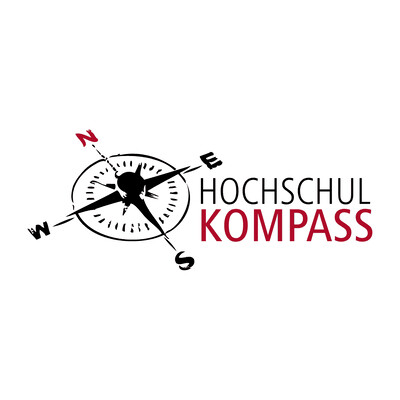Teaching Literature in the Mediafull time
Master of Arts
Master
Degree4 semesters
Standard period of study (amount)
Marburg
Location
Overview and admission
Study Type
graduate
Admission semester
Summer and Winter Semester
Area of study
- German Studies
- Media Studies
- General Literary Studies
Focus
Literary Life and Media History, Literary, Cultural and Media Theory, Cultural Practice, German Literature
Target group
Graduates with a relevant specialised Bachelor’s degree in the field of Literary or Cultural Studies with German Studies components or a comparable German or an international professionally qualifying certificate of academic degree with an overall grade of at least 2.7. Certificate of academic degree with a subject component in German literary studies of at least 48 credit points qualify for admission. Certificate of academic degree with a smaller subject component in German Literary Studies qualify for admission if at least 24 credit points in the field of German literary studies and at least 24 credits in the field of media, literature or cultural studies have been obtained.
Annotation
The Master's degree programme 'Teaching Literature in the Media' trains experts in contemporary literature and its teaching in the cultural sector. The degree course is based on four pillars: - In research-related literature and media studies teaching, it enables students to observe the constantly changing cultural field, and to recognise, name and assess new aspects. Individual and group mentorships provide close scientific support as well as early internal and out-of-university networking. - In a separate editorial training team, in internships and in joint research projects with permanent cooperation partners from renowned cultural institutions, professionally relevant skills are acquired that enable students to navigate a rapidly changing economic and media environment and to productively relate theory and practice to one other, also in tandem courses. - Literary-historical knowledge is imparted, because the present can only be understood by those who know about its prehistory and about comparative material from other eras and contexts: these will be jointly processed in innovative digital formats in cooperation with the Marburg Media Centre on the basis of audio-visual materials from publishers, radio, film and television. - The focus is on German-language literature from the Middle Ages to the present, but the comparative perspective is not neglected either. In transatlantic teaching and research projects, international cooperation, which is particularly indispensable in the field of literature, is also practised and experienced through (digital) exchanges. Research focuses: The Master's degree programme consists of the study areas of 'Literary Life and Media History', 'Literary, Cultural and Media Theory', 'Cultural Practice' and the 'Final Modules'. Particular emphasis is placed on an 'Editorial Training Team' teaching unit developed specifically for this degree course and a methodologically oriented scientific module dedicated to the question of how current streams in the contemporary literary field can be captured (and used) at all. In the practical module, students can choose between a traditional internship and a self-determined project.
Admission requirements
https://www.uni-marburg.de/de/studium/studienangebot/master/m-lvm
Lecture period
- 15.04.2024 - 19.07.2024
- 16.10.2023 - 09.02.2024
Application deadlines
Summer semester (2024)
Application deadline for Germans and inhabitants
The application deadlines for study programmes at the Philipps-Universität Marburg can be found on our university homepage under the following link: www.uni-marburg.de/de/studium/bewerbung/bewerbungsfristen
Deadlines for International Students from the European Union
The application deadlines for study programmes at the Philipps-Universität Marburg can be found on our university homepage under the following link: www.uni-marburg.de/de/studium/bewerbung/bewerbungsfristen
Deadlines for international students from countries that are not members of the European Union
The application deadlines for study programmes at the Philipps-Universität Marburg can be found on our university homepage under the following link: www.uni-marburg.de/de/studium/bewerbung/bewerbungsfristen
Enrollment deadline for Germans and foreign students
The application deadlines for study programmes at the Philipps-Universität Marburg can be found on our university homepage under the following link: www.uni-marburg.de/de/studium/bewerbung/bewerbungsfristen
Winter semester (2023/2024)
Application deadline for Germans and inhabitants
The application deadlines for study programmes at the Philipps-Universität Marburg can be found on our university homepage under the following link: www.uni-marburg.de/de/studium/bewerbung/bewerbungsfristen
Deadlines for International Students from the European Union
The application deadlines for study programmes at the Philipps-Universität Marburg can be found on our university homepage under the following link: www.uni-marburg.de/de/studium/bewerbung/bewerbungsfristen
Deadlines for international students from countries that are not members of the European Union
The application deadlines for study programmes at the Philipps-Universität Marburg can be found on our university homepage under the following link: www.uni-marburg.de/de/studium/bewerbung/bewerbungsfristen
Enrollment deadline for Germans and foreign students
The application deadlines for study programmes at the Philipps-Universität Marburg can be found on our university homepage under the following link: www.uni-marburg.de/de/studium/bewerbung/bewerbungsfristen
Tuition fee
Fees
There are currently no tuition fees in the state of Hesse!
Languages of instruction
Main language
German

